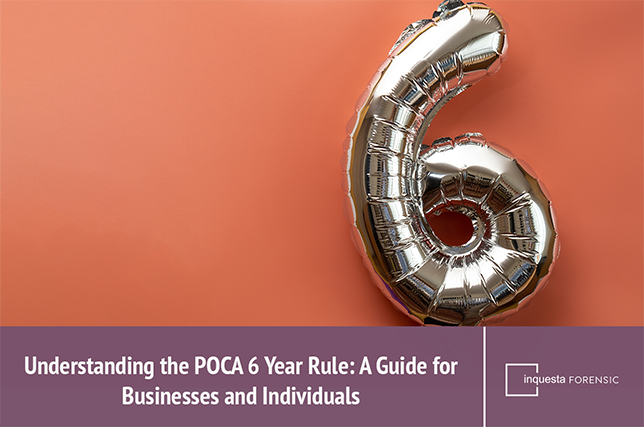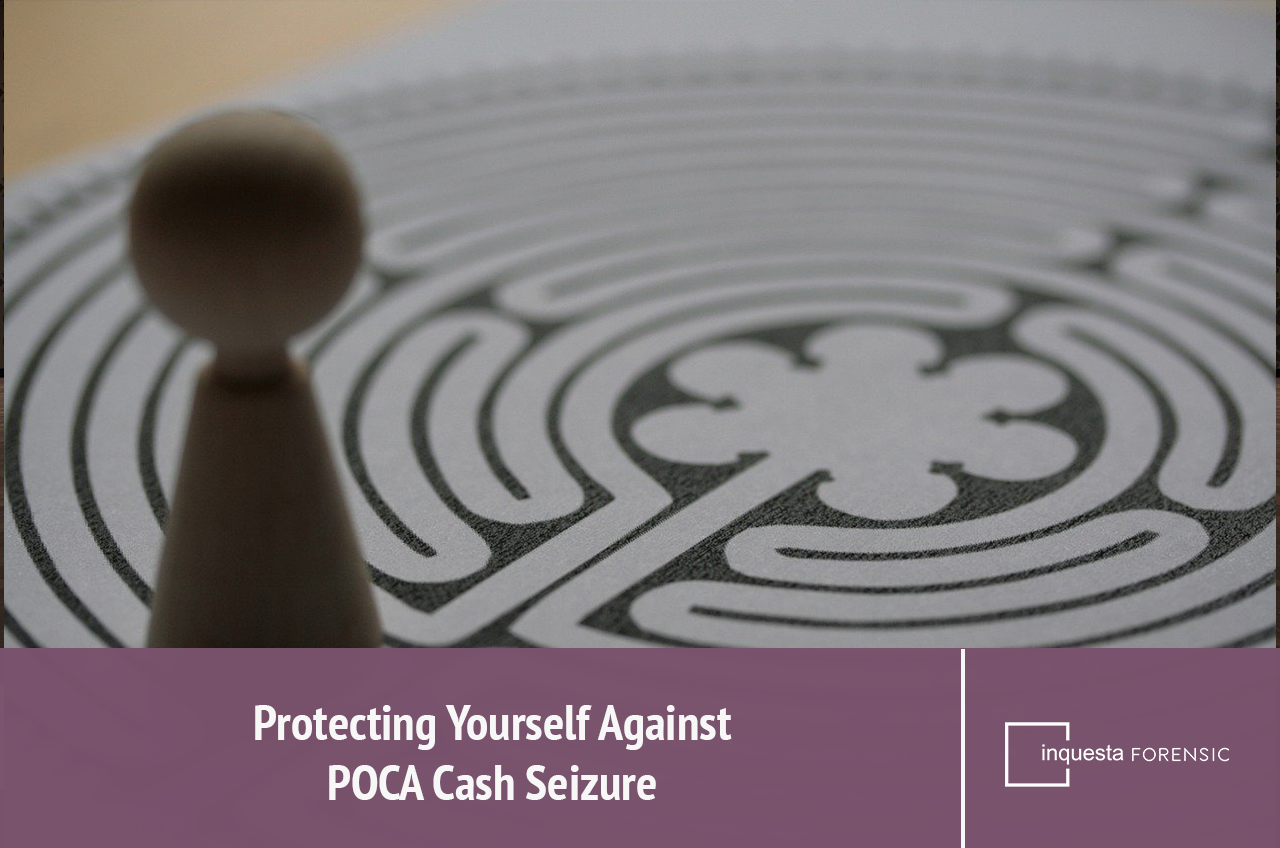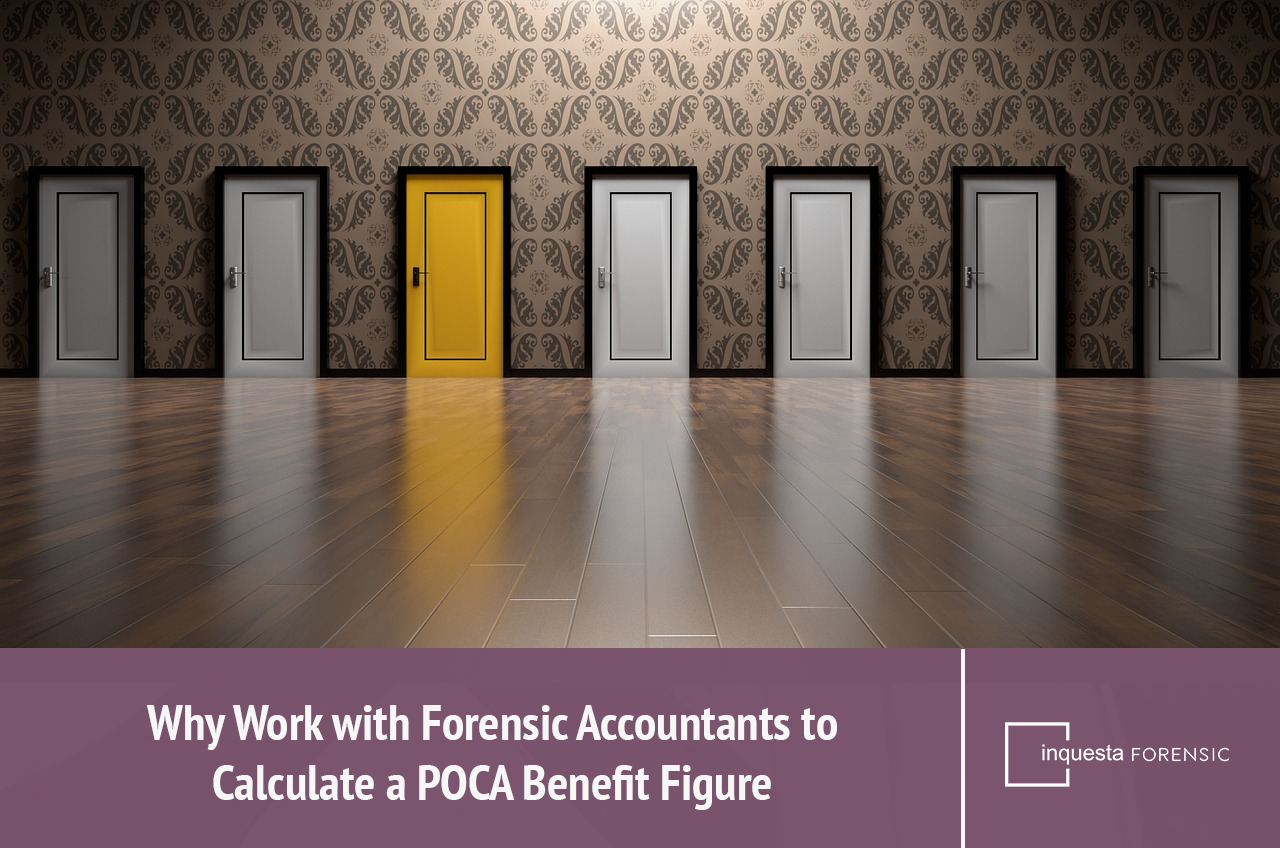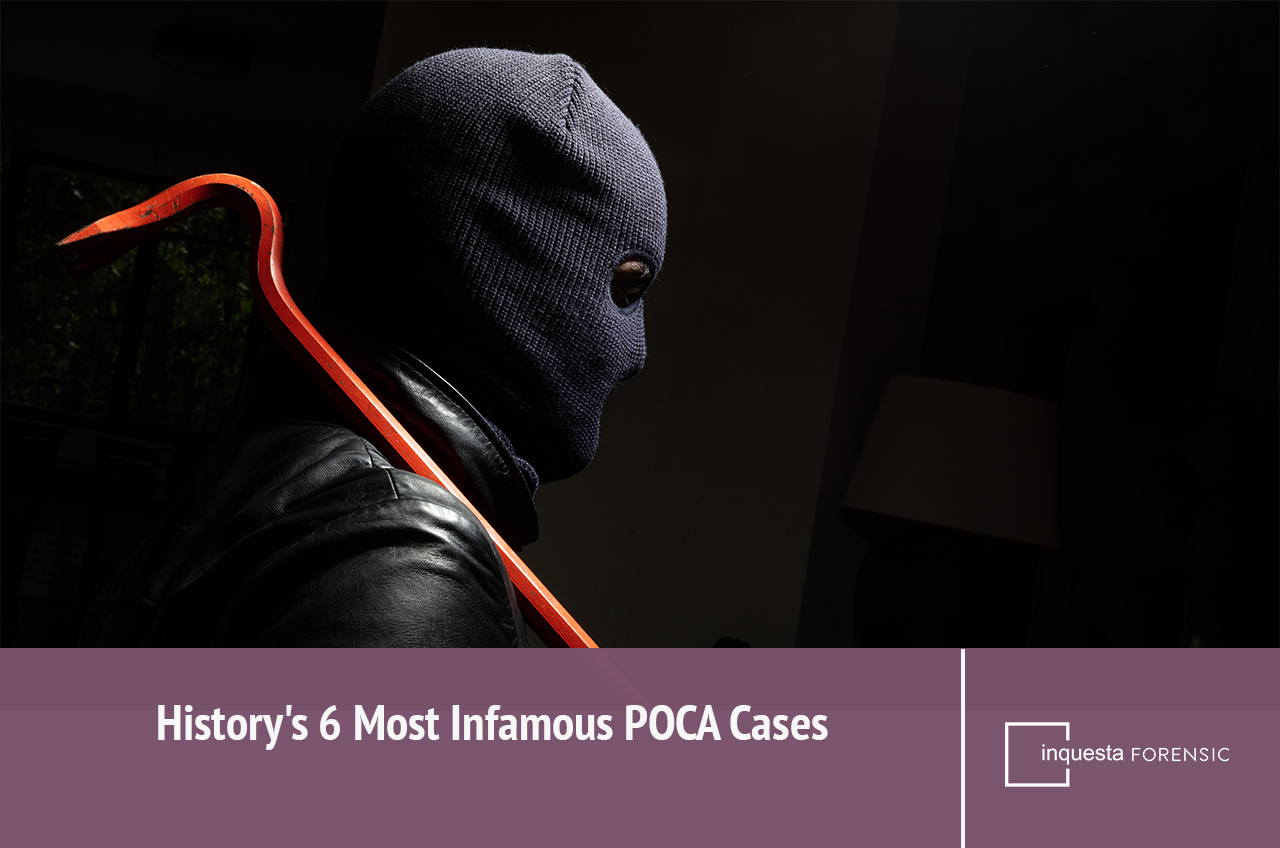Confiscation orders under the Proceeds of Crime Act (POCA) are a daunting prospect for all parties involved, from the defendant to their defence team. These orders are among the most powerful tools available to authorities for stripping individuals of any assets believed to be connected to criminality. However, during the process, tactics from the prosecution, and complexities in the process, can make it exceedingly difficult to get the best outcome.
Fortunately, with a more informed and robust confiscation order defence strategy, it is possible to challenge the process effectively. In this blog, we will explore the essential elements of a robust confiscation order defence plan, the nuances of POCA, and how an expert forensic accountant can play a vital role in securing a successful outcome.
What is a Confiscation Order Under the Proceeds of Crime Act?
A confiscation order is a legal directive issued by a court under the Proceeds of Crime Act (POCA) 2002. The order compels defendants to pay a set amount, often representing the value they ‘benefitted’ from their criminal conduct. Typically issued post-conviction, confiscation orders under POCA are common in cases involving financial gain, such as fraud, trafficking, or money laundering.
The primary goal of a proceeds of crime confiscation order is to send a clear message that crime does not pay. However, many defendants find themselves facing inflated or unjust orders due to aggressive prosecution tactics or incorrect financial assessments.
[For more information about POCA Confiscation Orders, check out our dedicated blog: What Happens if You Can’t Pay POCA Confiscation Orders?]
Key Challenges & Confiscation Order Defence Strategies to Combat Them
Mounting a successful confiscation order defence is crucial for safeguarding a defendant’s assets and financial future. Given the often aggressive tactics used by the prosecution to inflate the confiscation amount, adopting a strategic, multi-layered defence approach is essential. This includes challenging inflated assessments, proving legitimate sources of wealth, and leveraging expert financial analysis.
Below are the critical steps you should implement to counter the prosecution’s efforts and effectively mount an effective confiscation order defence:
Challenging the Benefit Figure
The first step often involves disputing the benefit figure claimed by the prosecution. This figure represents the amount the prosecution alleges the defendant gained from particular and general criminal activities. Prosecutors may attempt to exaggerate this figure by including legitimately acquired assets or making assumptions about unexplained wealth.
- Defence Strategy: Engage a forensic accountant to meticulously review all financial records. By accurately distinguishing between legitimate income and proceeds of crime, the defence can argue for a reduced benefit figure, significantly lowering the final confiscation order amount.

Addressing the ‘Available Amount’
After determining the benefit figure, the court assesses the defendant’s available amount—the value of assets that can be confiscated. If the available amount is lower than the benefit figure, the confiscation order should be adjusted. Prosecutors, however, may argue that jointly owned or partially controlled assets are fully within the defendant’s control, inflating the available amount.
- Defence Strategy: Provide robust evidence to prove the true ownership and control of assets. A forensic accountant can conduct reviews and valuations to challenge boosted assessments, thereby protecting assets from overreach.
Proving Legitimate Sources of Wealth
The prosecution may scrutinise the origins of a defendant’s assets, especially if the asset value exceeds proven legitimate income. This often leads to assumptions that any unexplained wealth must be linked to criminal conduct. However, there are more ways a defendant can come by high-value assets than just off the back of criminality.
- Defence Strategy: Forensic accountants excel at tracing financial transactions to prove legitimate sources of wealth. Whether assets stem from inheritance, business profits, or investments, expert financial analysis can safeguard them from unjust confiscation.
Overcoming Hidden Asset Allegations
Allegations of hidden assets typically arise when the prosecution, based on the defendant’s financial situation and the nature of their crimes, suspects that assets have been concealed. These allegations can lead to increased confiscation demands, creating significant pressure on defendants to prove that no hidden assets exist.
- Defence Strategy: To counter hidden asset allegations under Section 18 POCA, it is crucial to provide transparent financial disclosure. An expert in forensic accounting can help verify the legitimacy of disclosed assets and wealth, effectively challenging the prosecution’s claims of concealed assets. This approach can ultimately help to contest an incorrect confiscation order.

Managing Tainted Gifts and Lifestyle Assumptions (Section 10A POCA)
Section 10A of POCA allows the court to apply assumptions when it comes to the lifestyle the defendant lived. This includes the presumption that any assets or gifts acquired in the six years prior to confiscation proceedings being initiated are linked to criminal conduct. Any such assets would, thereby, be classified as ‘tainted gifts’, leaving the defendant vulnerable.
- Defence Strategy: To deflect tainted gift/criminal lifestyle assumptions under Section 10A POCA, the defence must be able to demonstrate that such gifts/assets were acquired from a legitimate source. Financial tracking and expert testimony are vital if you want to repel such claims.
Navigating Reassessments and Increased Orders (Section 22 POCA)
Section 22 POCA empowers the prosecution to seek a reassessment of the defendant’s financial status should any new assets be discovered during the process. This can result in a new or increased confiscation order amount and create additional time pressures for payment.
- Defence Strategy: The best method to counter potential accusations following reassessments under Section 22 of POCA requires proactive planning. The Confiscation Order defence team should provide swift evidence of any changes to financial circumstances, to show that new assets have nothing to do with criminal behaviour. This proactive approach can prevent additional penalties being added to the case, including an extended sentence.
Dealing with Restraint Orders and Asset Freezing (Section 47 POCA)
Section 47 POCA permits the prosecution to secure restraint orders which freeze a defendant’s assets during the investigation. The purpose of this is to prevent asset dissipation in an attempt to hide ill-gotten-gains. However, the freezing of assets can cause severe financial hardship during an already difficult period. This is particularly hard to swallow when the accusation is not justified.
- Defence Strategy: In order to challenge the right to a restraint order under Section 4 POCA, the defence must demonstrate that assets were legitimately acquired. The more you can prove, the less the defence has reason to be suspicious of — the lower the odds that restraint orders will be required. However, accurate tracing of assets, especially involving complex cases, such as those involving cryptocurrency or offshore accounts. This means a financial expert, like a forensic accountant could make all the difference in safeguarding the defendant’s financial position in the short-term.
Top Tips for Defending Facing Confiscation Orders
Facing a confiscation order can be a complex and high-stakes challenge for a defence team. However, a proactive and well-prepared defence can do wonders to significantly reduce the potential implications and financial impact of the defendant. Here are a selection of key confiscation order defence strategy tips to help fortify your plan.
- Engage Experts Early: Bringing in forensic accountants and legal experts as early as possible in the process is essential. Such specialists can meticulously review financial records, challenging any over-reaches, in order to build more robust defence cases.
- Full Disclosure: When it comes to formulating a successful confiscation order defence strategy, transparency is key. It’s important that you disclose any and all potentially relevant financial information to avoid negative assumptions being made.
- Challenge Aggressive Assumptions: As covered throughout this article, prosecutors will often attempt to inflate benefit figures by making assumptions. It’s important to not accept any valuations at face value. You should leverage expert evidence and analysis to expose any flaws in calculations. This can significantly reduce the confiscation amount — while delegitimising their argument.
- Act Quickly: Confiscation proceedings under POCA come with tight deadlines. Failing to meet this can result in serious consequences for the defendant. Therefore, swift action is essential in filing appeals, gathering evidence, and submitting financial disclosures. An expert who has been there and done it before can be a huge boon to this end.
- Work To Your Timetable: Another common tactic prosecutors may look to utilise is attempting to speed up the process. All this does is benefit them, as it will limit your time to prepare a proper defence. Engage an expert early and do your best to act promptly in order to stay ahead and ensure the process is operating at your speed.
- Create an Early Resolution Process: Consider seeking any opportunities you can to reach an early resolution. The best way to do this is by negotiating with the prosecution, to settle at a more ‘realistic’ amount. This approach can save time and often leads to a more favourable outcome — while keeping the defendant as happy as possible.
- Exclude Assets Acquired Post-Confiscation: If the prosecution seeks to increase the confiscation order by revisiting defendant finances (as is allowed under Section 22 of POCA), ensure that newly acquired assets have not been factored in.
Navigating Tricky POCA Confiscation Orders
Facing a confiscation order under the Proceeds of Crime Act can be overwhelming, but with the right confiscation order defence strategy and expert support, it is possible to challenge the prosecution’s claims, protecting key assets. Whether disputing inflated benefit figures, countering hidden asset claims, or defending against allegations of tainted gifts, a proactive approach is key to achieving a fair resolution.
Are You Facing a Confiscation Order?
If you’re dealing with a confiscation order POCA case and need expert assistance, our forensic accountants are here to help. We specialise in the analysis of complex financial situations, providing robust confiscation order defences in POCA cases.
Contact us today for a confidential consultation and find out how we can assist in your case.
Disclaimer: This blog is for informational purposes only and does not constitute legal advice. Always consult with a professional for specific advice related to your situation.
- 11 Costly Business Valuation Errors (And How to Avoid Them)
- Fraud in Divorce: How UK Experts Expose Hidden Assets
- Investigating Financial Fraud: How Forensic Accountants Uncover Deception
- How Forensic Accountants Trace Offshore Accounts & Hidden Assets
- Forensic Crypto Crime: How to Trace Digital Assets in Fraud Cases










